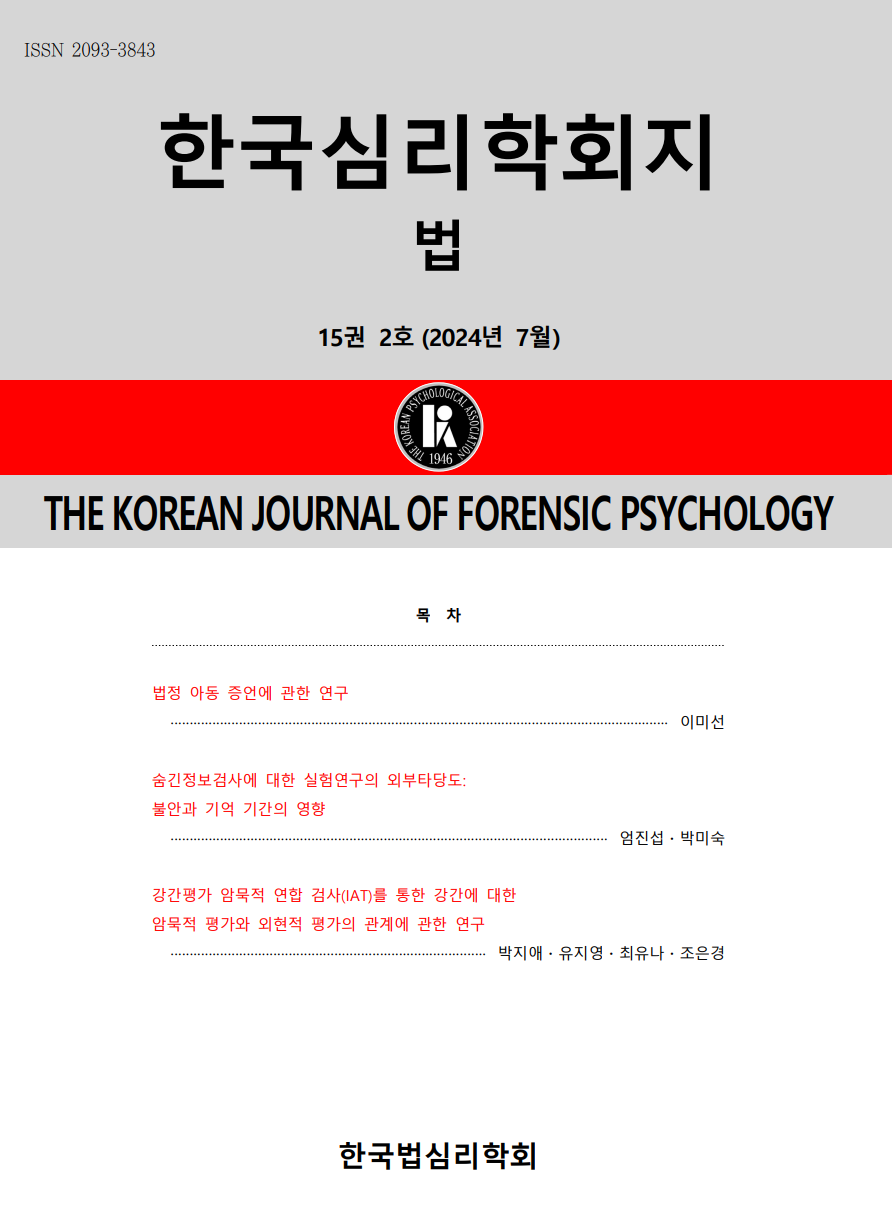open access
메뉴
open access
메뉴 ISSN : 2093-3843
ISSN : 2093-3843
Statement Validity Analysis (SVA) is utilized in criminal investigations and the court to assess the credibility of given statements. During this procedure, the criteria for Criteria-Based Content Analysis (CBCA) are used to evaluate whether statements include the characteristics reflecting actual experiences about the event in question. Various studies had been conducted on the efficacy (classification rates) of CBCA criteria, yet the consistency of the findings was not investigated. In the current study, a meta-analysis was conducted with Korean CBCA studies reported from 2004 to 2020 (a total of fourteen studies). As a result, the total score of CBCA was found to successfully discriminate truth and fabrication. A significant positive (+) effect size was found with four criteria (3, 4, 10, and 12), all of which are classified as cognitive criteria. However, contrary to the underlying assumption for CBCA, criterion 18, classified as one of the motivational criteria, showed a significant negative (-) effect size. Meanwhile, moderator analyses were possible for eleven criteria (2~9, 12, 13, 15) and the results showed the significant effects of potential moderator variables such as the gender and status of the participants, study types and designs, number of raters, and publication status. The current results suggests that more careful attention is required to each criterion―especially the cognitive criteria―rather than the total CBCA score as well as the possible moderator effects in order to assess truthfulness of the statements. The implication, limitations, and suggestions for future studies were discussed.